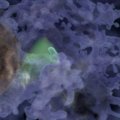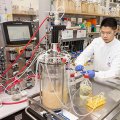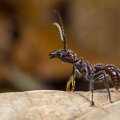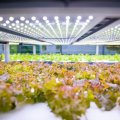Leading Australian university, The University of Queensland, will continue its Global Challenges Leadership series with a seminar and networking event in Japan today, Wednesday, October 5.
Associate Professor Dr Kazuhiro Nogita, a principal research fellow at The University of Queensland (UQ) will discuss materials for sustainable energy solutions at Hotel Okura, Tokyo at 5.30pm.
The seminar will be delivered in English and Japanese.
Dr Nogita will examine how collaborations between industry and research facilities in Australia and Japan can expedite the development of new materials.
In particular, cutting-edge research facilities such as synchrotrons located in both Australia and Japan have been used to make advances in research not possible with conventional instruments.
Dr Nogita will provide an overview of his research with Hydrexia, a Queensland, Australia company which works in hydrogen storage solutions (the company was formed following discoveries made at UQ).
He will also discuss his research with Nihon Superior, a global supplier of lead-free solder alloys based in Osaka, Japan.
Dr Nogita’s research has been used to manufacture an electric vehicle that participated in the Global Green Challenge, a 3000km race through outback Australia. Highlights of this race will be shared at the seminar.
The University of Queensland is one of Australia’s leading research-intensive universities and has been ranked one of the world’s top 100 universities in a range of influential international benchmarking surveys.
The Global Challenges Leadership Series is an engagement opportunity for alumni and UQ partners to join the University and its great minds in an open dialogue on solutions to global issues.
The series highlights the University’s role as an internationally engaged research institution with global reach and impact, committed to finding innovative solutions to global issues through learning, discovery and engagement.
Seminar presenters are experts in their fields and current influential leaders at the forefront of research, business and industry.
This year the University has held Global Challenges series events in the U.S., U.K., Indonesia, Australia and South America, and the seminar in Japan will be followed by further events in Vietnam and China this month.
The visiting delegations will also celebrate the 30th anniversary of the University’s Institute of Continuing and TESOL Education, an award-winning global institute offering onshore and offshore programs and services to more than 6500 participants from more than 60 countries each year.
Senior Deputy Vice-Chancellor Professor Michael Keniger said a stronger global network aligned with the University’s objectives to support collaborations with other institutions, business and governments in research, teaching and in enriching the student experience.
“The University has enjoyed a strong relationship with Japan for over 30 years that has been built on extensive student exchange partnerships,” he said.
UQ has 27 partner universities in Japan with 46 agreements. The University also has seven non-university partners in Japan.
“UQ has a growing network of research activity with Japanese universities and institutional partners,” Professor Keniger said.
“The top UQ-Japan collaborating partners are the University of Tokyo, Osaka University, Kyoto University, Ibaraki University and Waseda University.
“UQ and Japanese academics are actively building knowledge and capacity in priority areas to address global challenges such as the environment, health, agriculture, and food security.
“They are collaborating in the fields of biochemistry, genetics and molecular biology, medicine, materials sciences, physics and astronomy, engineering, agricultural and biological sciences and chemistry."
Visit www.uq.edu.au/global-challenges to find out more about The University of Queensland’s Global Challenges Leadership series.
Media: Jan King 0413 601 248 j.king@uq.edu.au
.jpg)










